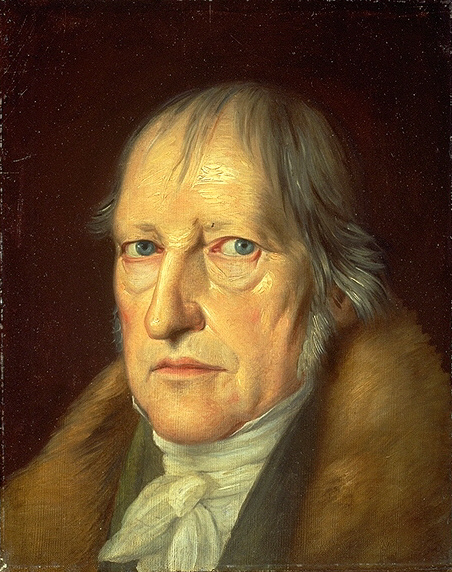 Georg Wilhelm Friedrich Hegel was born on 27th August 1770 in Stuttgart, which was then part of the Duchy of Württemberg where his father served as a revenue officer. Hegel learnt Latin from his mother at a young age and later attended the Stuttgart Gymnasium. At his father’s suggestion he embarked on a career as a protestant clergyman, enrolling at the University of Tübingen seminary in 1788.
Georg Wilhelm Friedrich Hegel was born on 27th August 1770 in Stuttgart, which was then part of the Duchy of Württemberg where his father served as a revenue officer. Hegel learnt Latin from his mother at a young age and later attended the Stuttgart Gymnasium. At his father’s suggestion he embarked on a career as a protestant clergyman, enrolling at the University of Tübingen seminary in 1788.
On completing his studies in 1793, Hegel decided not to become a man of the cloth and started work as a private tutor in Berne, Switzerland. He had developed an deep interest in philosophy and began to study the works of Immanuel Kant and Johann Fichte. Nevertheless, he had not abandoned his study of religion as demonstrated by his writings of that time: Life of Jesus and The Positivity of Christian Religion.
In 1796, Hegel co-wrote The First Programme for a System of German Idealism with his friend the philosopher Friedrich Wilhelm Joseph von Schelling. The next year he left for Frankfurt to take up a new tutoring job, but the bequest he then received following his father’s death enabled him to return to education. In 1801, he found an non-salaried position at the University of Jena where he continued his studies, wrote and lectured.
Having exhausted the legacy from his father, in 1807, Hegel moved to Bamberg to take the position of editor of the Bamberger Zeitung newspaper. A year later he received the appointment of headmaster at a Gymnasium in Nuremberg. By this time he had published his first solo philosophical work, Phänomenologie des Geistes (“Phenomenology of Mind“), in which he detailed his dialectic method.
While teaching in Nuremberg, Hegel published the first part of his Wissenschaft der Logik (“Science of Logic“) in 1812. The last part entered print in 1816, the same year that he received various offers of university professorships. He chose to take up the appointment from the University of Heidelberg, but two years later he became the chair of philosophy at the University of Berlin, where he published his Grundlinien der Philosophie des Rechts (“Elements of the Philosophy of Right“) in 1821.
In 1830, the sixty-year-old Hegel became rector of the university and during the following year King Frederick William III of Prussia decorated him in recognition of his services to the state. Later that same year Hegel left Berlin during a cholera epidemic. Nevertheless, he died in his lodgings in Kreuzberg on 14th November 1831.
The German texts of a number of Hegel’s works are available on Project Gutenberg. To learn more about Hegel’s thought see his entry on the Stanford Encyclopaedia of Philosophy site.
